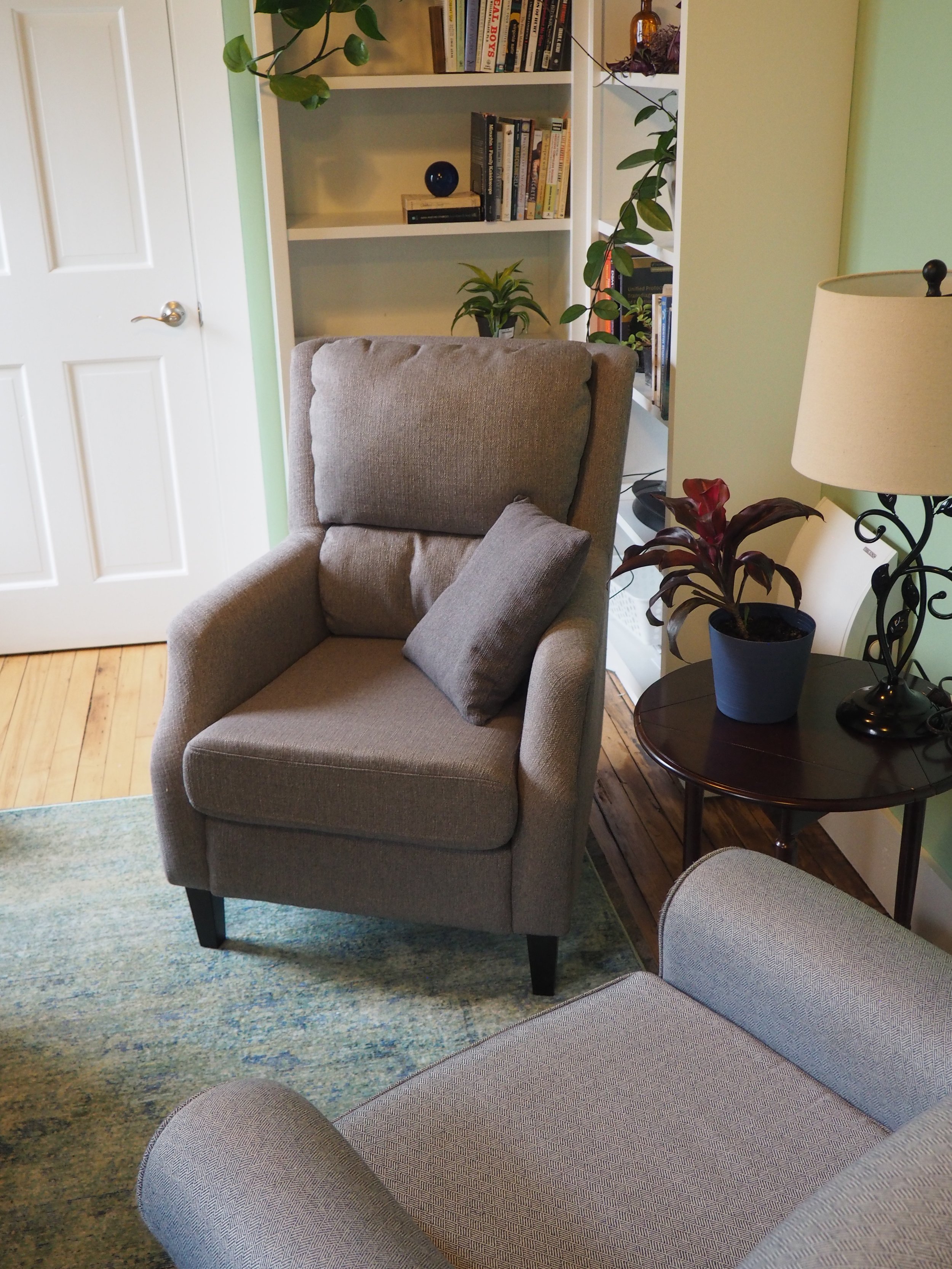
wHAT i DO AS A COUNSELOR
PROVIDE A SAFE ENVIRONMENT
I strive for my office to be a safe and helpful space for all people who walk through the door, no matter their gender, sexual orientation, race or ethnicity. And I believe it’s important for mental health professionals to recognize that the stresses and pain that individuals experience is often caused by systems of oppression. I want to create a space where we can discuss those forces. I continue to learn how to be a positive presence for all my clients.
GIVE YOU A SPACE TO TALK
Working with a counselor is a unique experience—as a counselor, I don't have any role other than to listen to you. Unlike others in your life, you and I have no history, so we begin with a blank slate. You don't have to worry about upsetting me or taking up my time. You and I will have the opportunity to explore and better understand the issues you deal with, and to work together on how to make things better.
CREATE A PLAN FOR CHANGE
In our time together, we will work with all aspects of your self—your thoughts, your emotions, your history, and your connections with others. As you understand yourself and your issues in a deeper way, you will set the goals you wish to achieve in our work. And together, we will use your knowledge and mine to create a plan that will help you to increase your ability to function, grow, and flourish.
wHO DO i WORK wITH?
I work with people dealing with the difficulties and struggles that come from living and growing, including life transitions, grief, depression, relationship difficulties, trauma, anxiety and stress.
You do not need a diagnosis to work with me. I believe that counseling can be helpful for anyone, and I will learn from you about your particular struggles, strengths, and experiences. However, if you have been diagnosed with a mental health issue, or are interested in being diagnosed, we can work together to understand and identify your struggles.
I have experience working with people struggling with generalized anxiety, social anxiety, depression, obsessive-compulsive symptoms, trauma, and bipolar processes. Many of my clients are struggling with relationship difficulties, anxiety, stress, and grief. I believe that giving space to these problems and the emotions involved in them can be both revealing and transformative.
FAQs
-
Sessions consist of the two of us sitting down together and talking. The content of our discussions is up to you, and will be influenced both by your overall goals of coming to counseling, and what is present for you that day. It takes time to unpack and make sense of what goes on inside us, and week by week we will create the time for you to do so.
-
I typically meet with clients once a week, and the sessions typically last 60 minutes.
How long we work together depends on the goals you have coming into counseling. We will try to clarify those goals, and update them as we go along, and when it seems like you may have met them, will begin to discuss wrapping up our work together. Of course you are free to end our counseling work at any time.
-
I only offer in-person counseling sessions at this time, at my office in Brunswick. In extenuating circumstances, we might meet by video, but my approach generally leans into the impact that meeting in-person provides.
-
I believe that the simple act of sitting down and sharing with somebody trained how to respond, and how not to respond, can be life-changing in itself. I prioritize your ability to safely and truly share your internal life because I find that putting it into words, speaking them out loud, and allowing yourself to feel the emotions that come with it, are healing and transformational experiences.
Counseling, like any field, has a lot of jargon that professionals use with each other. I practice humanistic therapy, meaning that I prioritize the experience and the expertise of my clients, not my own expertise. I practice experiential therapy, meaning that I believe that noticing and experiencing our emotions is important to motivating and allowing change. I believe that understanding and articulating your values will help move you in the direction of growth.
Most importantly, I ask you how you feel you could best use the counseling space. You know better than I ever can.
-
Counseling provides an opportunity to increase understanding, gain skills, and initiate change. The results can be long-lasting. It may lead to significant changes to your perspective, thinking, relationships, and decisions, but the exact nature of the change is impossible to predict. It depends not only on what we do together in session, but how you choose to carry that out into the world. I can offer support as you explore change, and help as you clarify what you want for yourself.
-
Part of what makes therapy different from usual conversation is that it is a place where we talk about what we’re talking about. If you ever wonder why we are doing something, or not doing something, you can feel free to speak up. It is always appropriate for you to let me know if you are displeased, confused, or dissatisfied with what we are doing. The ensuing conversation is likely to be very useful and enlightening to us both.
Checking our progress, changing what we do, and changing direction are all normal parts of the counseling process. However, you should also always feel free to end counseling if you feel it is not working for you. I can help refer you to another professional who might better suit what you are looking for, or match you to other resources.
-
When you speak with a professional counselor, the privacy of our discussions is legally and ethically protected. I will never share them with anyone without your written consent. I will keep any records of our work secure and private, and communicate with you outside of session only in a confidential manner. Even the fact that we are working together is protected information that I would never reveal to others.
There are only a few legal and ethical exceptions to your confidentiality. Before we begin work, you and I will discuss those exceptions.


